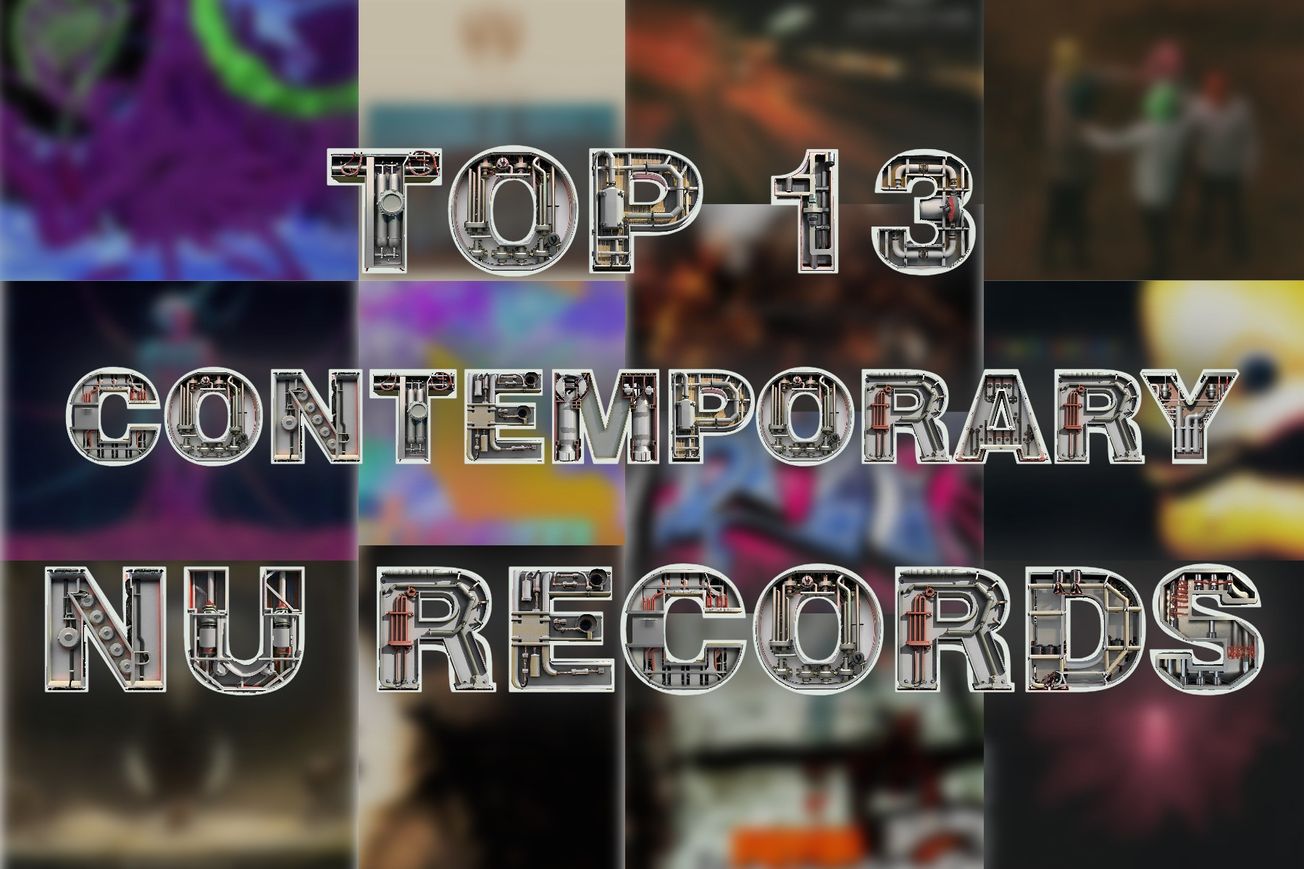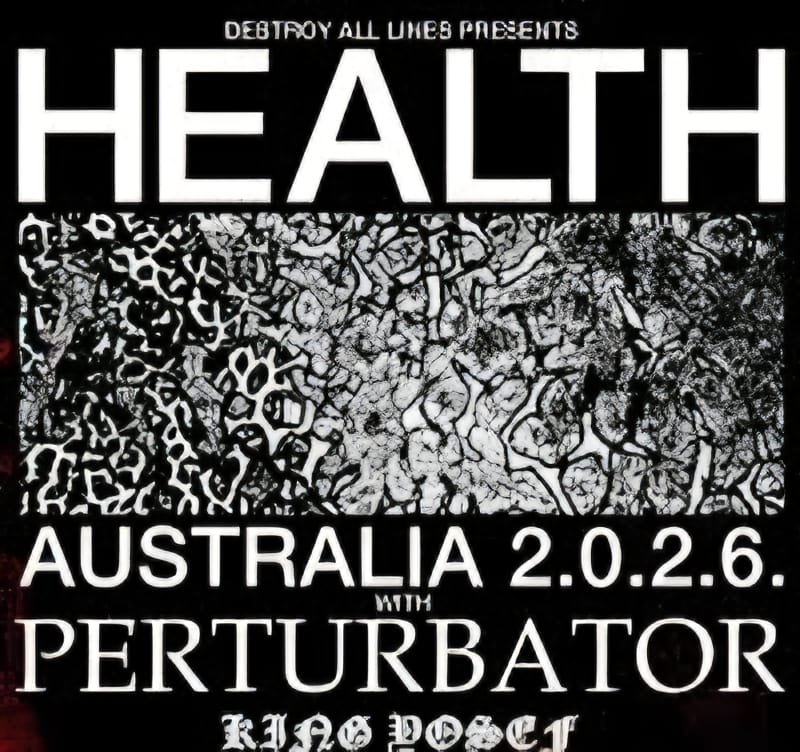This month the Nu Metal Agenda is sitting down in front of a big cake with a single candle in it. That’s right, ladies, gentleman, people who don’t give a fuck; we’re one year old! We blow out the candle, make a wish (wewishfornumetaltotakeovertheworld), quickly check Twitter to see if Fred Durst is climbing the Empire State Building (stay posted), then raise a glass and a “get the fuck up!” to the writers, the editors, the artists, and the founder himself, Mr. Holiday Kirk, who put fingers to keyboard in 2022 to remind the world of all the crazy ass moments in nu metal, founded the NMA a year later, and brought us all together to right the wrongs and put this Agenda in motion.
Speaking of the artists, it’s worth noting that although nu metal is said to be “back”, this is no revival. The scene today is as artistically vibrant and genre-breaking as it was in its dawn. Unlike the rest of the rock ecosystem, nu metal has never privileged the backward glance; today’s scene is more gender and color-diverse than ever, and draws as much from the living scenes of the moment–drill, hyperpop, EDM, cybergrind, death metal, sludge, hardcore, math rock, prog, and emo–as they do from the greats of old. In other words, nu metal is the present and future of heavy music once again. This is, in a way, the true meaning of the classic exhortation to “Get the fuck up”: join, engage, be part of, connect. It’s an invitation to all to bounce with the groove, even if only in your hearts.
So without further ado, we present to you 13 of the best records released since the Agenda began. Happy birthday to all who would get the fuck up with us.
– Josh Rioux
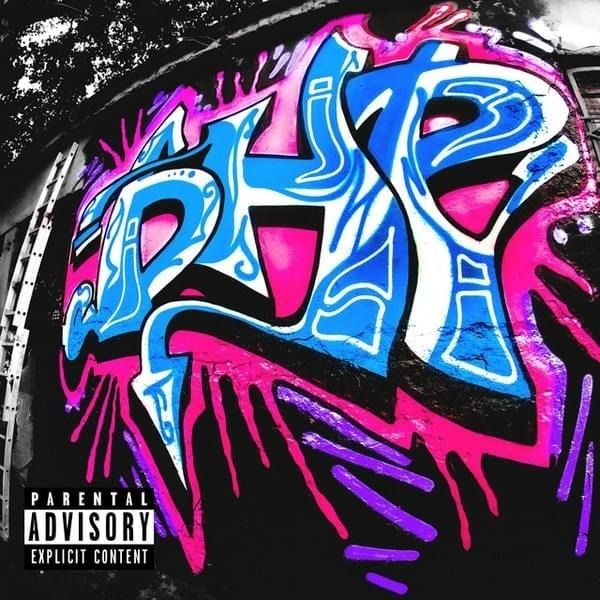
.bHP
.bHP
[South Warsaw Studios; 2022]
Nu metal denialism has a long and storied history, with the biggest names of the genre notoriously fleeing the label as soon and as quickly as their Tripp-panted legs could carry them. Which is why it’s so refreshing that Warsaw’s .bHP doesn’t waste their time on any of that shit. No, .bHP takes everything their predecessors ran from at full speed and remixes it into 37 minutes of unmatched enthusiasm. Turntable scratches? We’ve got scratch solos over breakdowns. We’ve got scratch solos everywhere. Frontwoman Asia Święczkowska can scream with the best of them, but spends most of her time channeling goofy white boy rap forebears like Fred Durst and Mark Maggiori. I don’t bring up Pleymo lightly – .bHP makes a strong case that they’re the 2020s’ answer to the French cult heroes. It’s the raw energy on display, the totally unselfconscious way they lean unabashedly hard into everything we’re supposed to admit was cheesy about nu metal. It’s the riffs. It’s the brilliantly tight rhythm section underpinning everything. It’s the exceptionally well-produced instrumental hip-hop interludes breaking up the action. .bHP’s debut is everything nu metal should be, confrontational, groove-oriented, and above all, just incredible amounts of fun. The music video for single “Crownless” is delightfully unpretentious – just the band in a big, homey studio, clearly having a blast, a small crowd dancing along. After listening to this album, you’ll want to get up and join them. — Gabi Brown
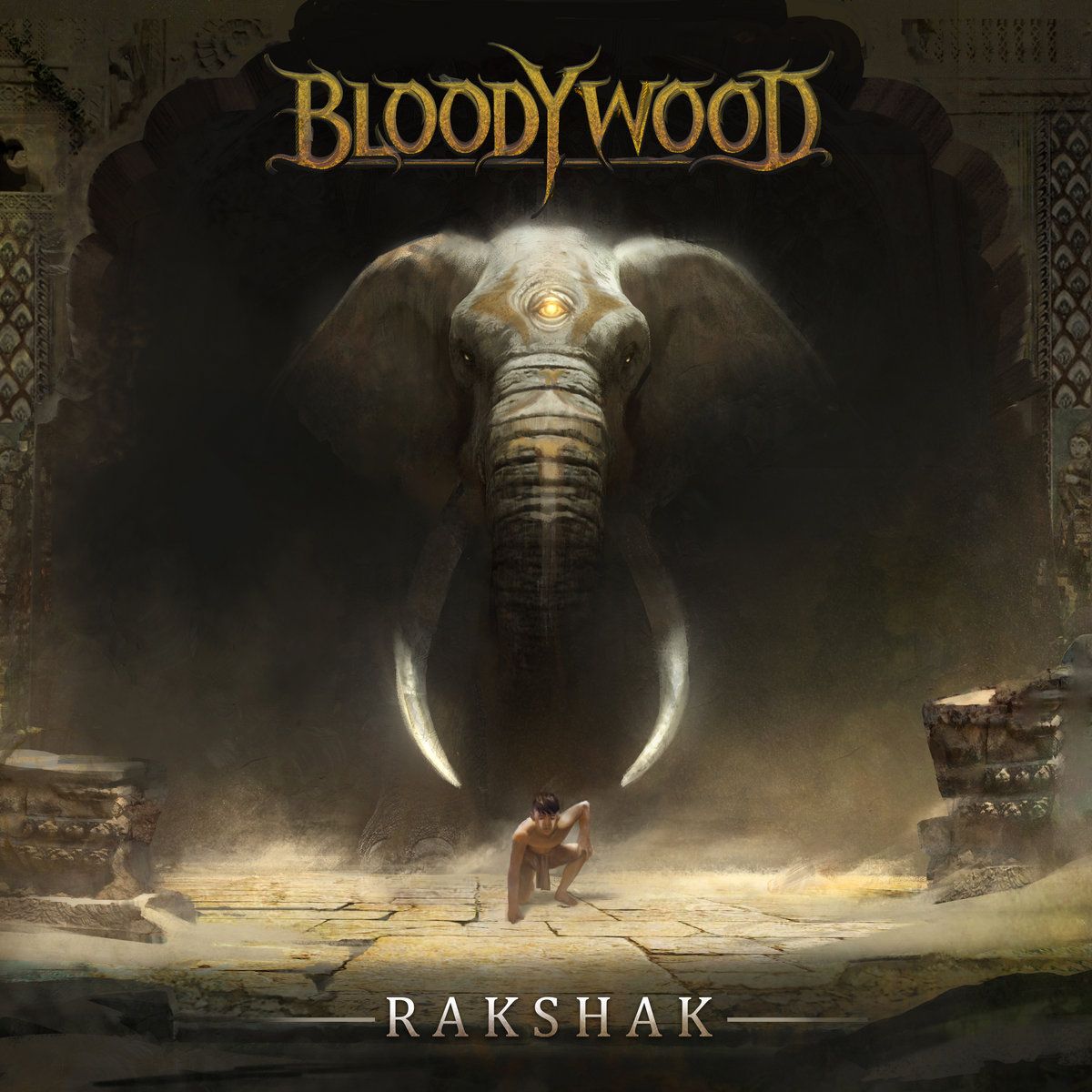
Bloodywood
Rakshak
[Independent; 2022]
Nu metal at its core has always embraced hybridity and the seamless integration of seemingly disparate genres, and few bands carry this spirit into an increasingly globalized 2020s as convincingly and enthusiastically as New Delhi’s Bloodywood. Their self-released debut Rakshak kicks off with “Gaddaar,” an impossibly hard-hitting organic blend of djent riffs, Indian folk instrumentation, bhangra rhythms, and politically-charged rap verses courtesy of Raoul Kerr. The interplay between Kerr’s rapping and Jayant Bhadula’s cleans and screams catapults the album forward at breakneck speed as the band shifts effortlessly between nu-metal bounce and soaring power metal stadium pomp. Album highlights “Machi Bhasad” (“Expect a Riot”) and “Dana Dan” (“Give a Beatdown”) take high-octane shots at the Indian political class and rape culture respectively, giving the music a lyrical urgency to match the instrumentals. Bloodywood isn’t afraid to dial back a bit, either – the comparatively mellow “Jee Veerey” frankly addresses mental illness and suicidal ideation, evolving into a poignant anthem about pushing through the pain and getting back up again even when it’s hard. This band quite literally puts their money where their mouth is – when the music video for “Jee Veerey” was released, they prepaid 60 therapy sessions for anyone that needed them, and fans contributed to make more available. It’s a welcome model for music-as-community-building in the Internet age, a recording artist supported by crowdfunding, using their success to address the issues they sing about. Rakshak is a resounding opening shot from a truly unique and promising group. Sleep on it at your own peril. —Gabi Brown

The Callous Daoboys
Celebrity Therapist
[MNRK Heavy; 2022]
Nu metal’s reputation as one of the dumbest, angriest, and most tasteless subgenres to ever declare six strings and zero turntablists at least one too few of each may have been entirely earned back in the 90s, but in the 2020s the genre has been left to a bunch of classy nerds who know anger is a neutron star’s worth of art-energy to be deployed for maximum love. Atlanta’s the Callous Daoboys are maybe the smartest band of our new nu age, and on 2022’s Celebrity Therapist we get a dissertation on the hellish mind-blender of contemporary culture that somehow both captures the data-firehose experience of looking directly into the internet and refracts it into hooks and melodies that fire off these songs like shrapnel. Nu metal’s greatest power has always been its willingness to hybridize any and all genres in order to inject energy and feeling into heavy music, and this is exactly what the Daoboys do here. Wild, motor-mouthed math-grind shot with massive breadowns, moments of Zappa-esque dork-prog and drifts of melodic bliss (“Violent Astrology”, “A Brief Article Regarding Time”) is the dominant move, but across the record they constantly crank the levels and we get shit like “Title Track”, which starts out in medias-panic attack only to open up into pockets of some of the prettiest indie rock and melodic grooves you’re ever gonna hear on a record that has lines like “You’re not John Wick, you LARPing fuck”, or “Star Baby”, which closes the album with something like a glorious, mirrorball-spangled prom night makeout session. Given everything that’s going on here, it’s easy to lose track of the frankly brilliant writing on this record; political, philosophical, funny as hell, and employing a nation’s worth of voices to tell the story, Carson Pace screams, chants, mumbles, rants, quips, death-growls and croons all over the record, and when that’s exhausted he brings on some lovely harmonies, choral pads, and clips of audio to fill out the Greek chorus the record is presenting to our daily shit-show. “Lord rid me of my word vomit,” Pace begs on “A Brief Article Regarding Time”, which makes Celebrity Therapist an answered prayer. We live in a cultural time that can stuff us so full of garbage it’s incredible we can keep getting more down, and frankly I’m with Pace on this one: Better out than in. —Josh Rioux
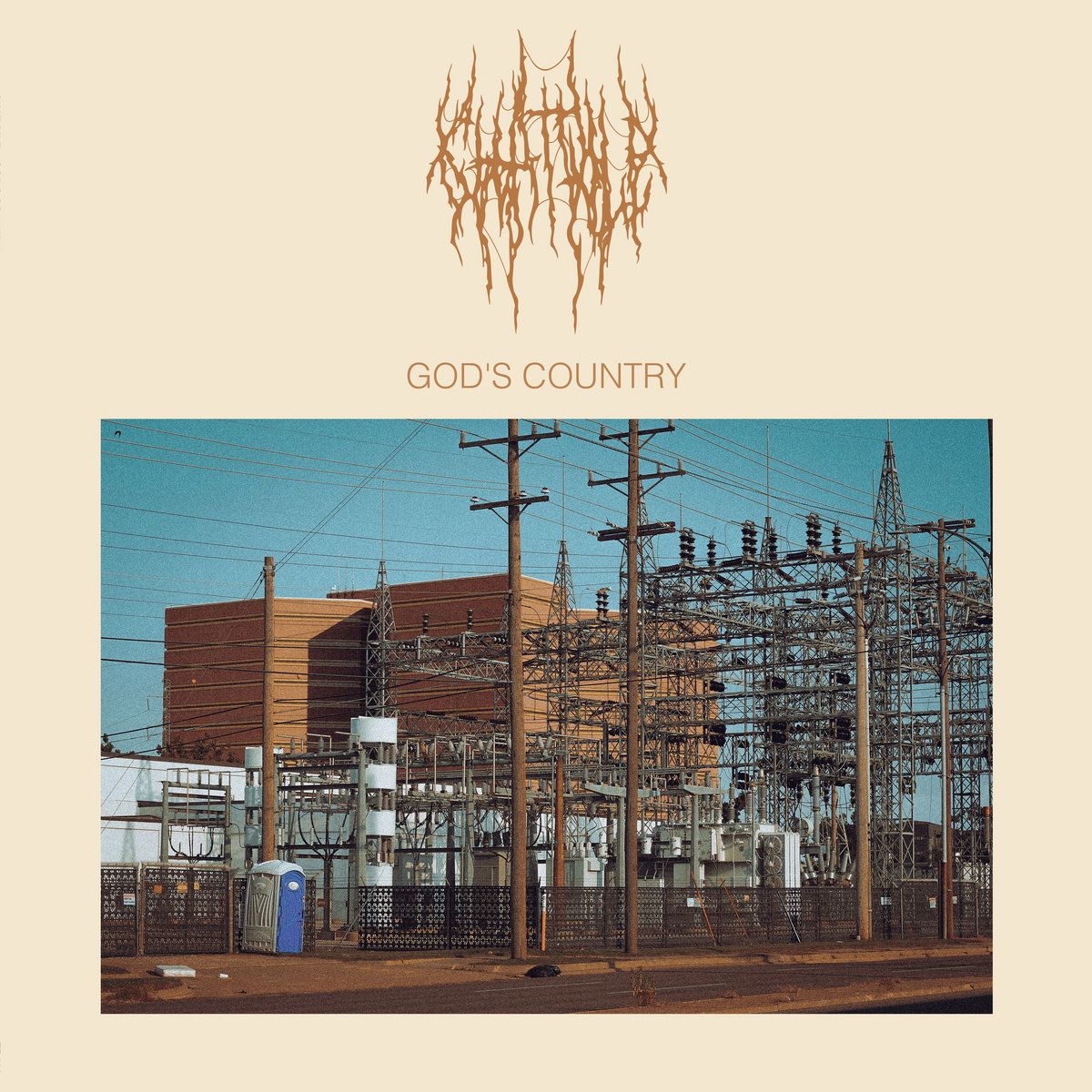
Chat Pile
God’s Country
[The Flenser; 2022]
Nu metal has always been blue collar, shitbox-car and buttfuck-nowhere town underdog shit. At its worst, the anger that comes with being fed through the capitalist wood-chipper on loop has been misdirected into crowds of equally poor folks, often browner and gayer than those on nu metal’s biggest stages. But at its best, we get expressions of rage and pain so focused and sensitive that a world of working-class suffering is conjured in musical rituals of cleansing fire. God’s Country, the 2022 full-length debut from Oklahoma’s Chat Pile, combines the grimy American gnarl of a found-footage hicksploitation with the gimlet eye and flaming heart of social justice documentary. There’s something wildly unprocessed about what Chat Pile does, as though the music is passing from their hearts to our ears with minimal construction and zero filtration, all ragged edges and raw, uncomfortable contact. We don’t hear these songs so much as we are exposed to them. The primal attack of Cap’n Ron’s electric kit and Luther Manhole’s shearing, atonal guitars have a kind of ragged abstraction to them, moving intuitively through the songs like raccoons through our blasted exurban zones, but for me it’s Stin’s gutteral, bear-jawed bass and the naked emotionality of Raygun Busch’s punch-drunk vocals that make this a nu metal classic for our times. Busch staggers and moans his way through these songs like a shaman channeling the most wounded among us in turn, people living and dying in the low places where all the runoff collects, sickened and smoldering, the fire never quite going out, the corrosives never quite washing off. In “Pamela”, a woman broken by grief reveals the bottomless depths of her pain, while “I Don’t Care If I Burn” puts us behind the eyes of a psychotic savoring the moment he becomes Death. The record climaxes with its final track, “Grimace_Smoking_Weed.jpeg”, where we bear witness to a man hallucinating the B-tier McDonald’s mascot in his last moments before a psychosis-driven suicide, a scene that’s simultaneously hilarious and harrowing in a way that leaves you wrecked in its wake. Busch’s performance on God’s Country is one-part schizoid street-prophet and one-part Iowa. If rock gave singers permission to be wild and metal gave them permission to be monstrous, nu metal was where frontpeople were freed to break down and completely lose their minds. God’s Country is about how it is to live in a world where such a thing is the only reasonable response. It’s a masterpiece. —Josh Rioux
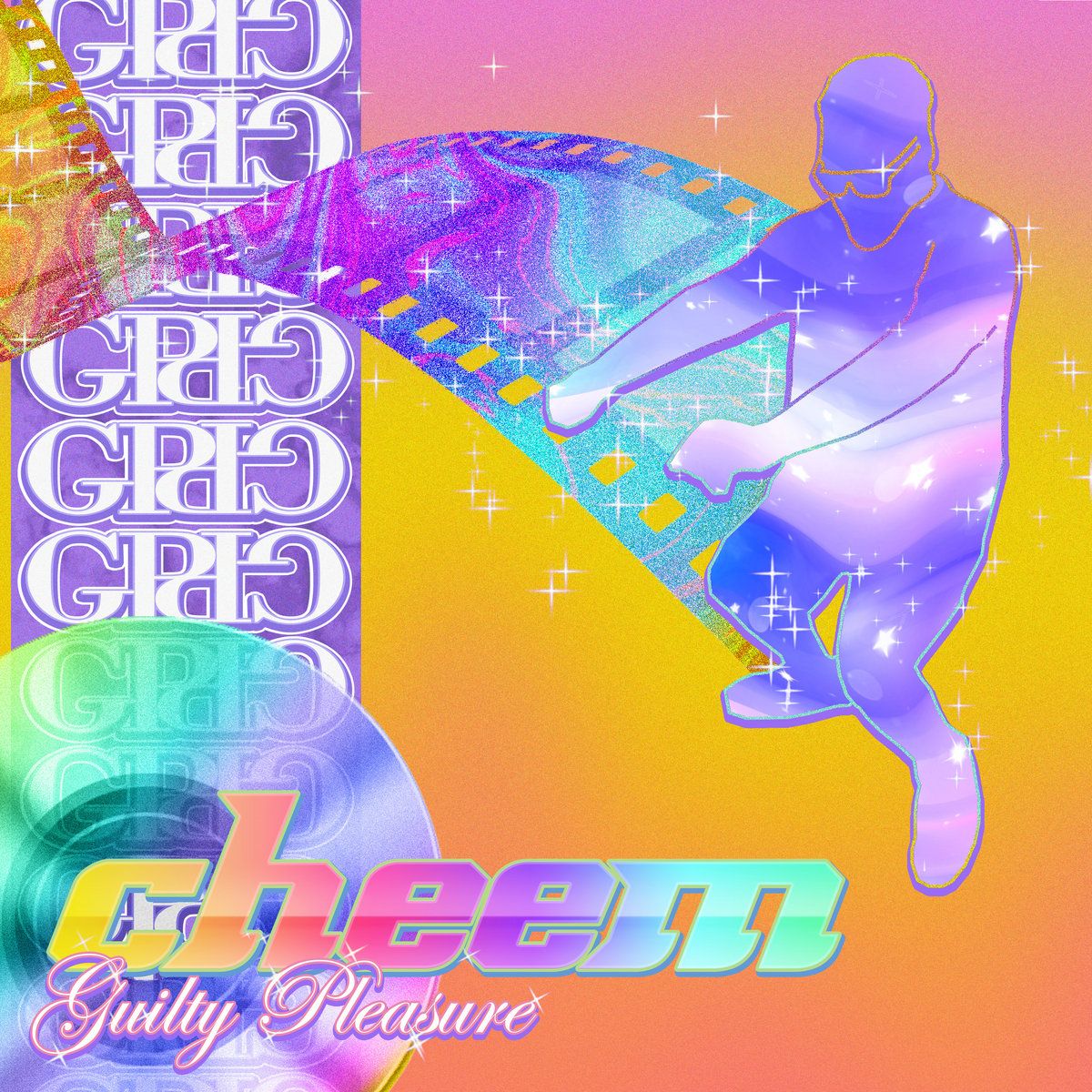
Cheem
Guilty Pleasure
[Lonely Ghost; 2022]
Imagine nu metal was a series of boss fights. Each boss is more powerful than the last, and they all happen to derive their powers and abilities from their musical unpredictability. You start off by taking a few jabs at Machine Head, who – as their health bar runs low – spits bars in your face when you least expect it. Determined not to wait and bleed, you grab your sword and shield and move on to Pleymo. Fending off a myriad of bounce riffs already proves to be quite challenging. Their tribal “kataooh tataoooh” however is the element of surprise that nearly takes you down, yet you prevail. But right when everything seems to go your way, your small taste of victory gets overshadowed by an overwhelming sense of dread. You look up to see a colossal, electrified figure towering over you. Claws resembling turn-of-the-millennium boy band hooks, poisonous fangs inducing A Fever You Can’t Sweat Out, turntables and a sampler for legs, and – much like Machine Head – unforeseen rap-rock verses. It’s game over before you know it. If nu metal 101 is all about learning how to push boundaries and deliver the unexpected, Cheem passed with flying colors. This Bridgeport, Connecticut five-piece is the ever-evolving Wild Wasteland perk of the genre. On 2022's Guilty Pleasure, you find a rare occasion where the artist's claims of not giving a fuck about commercial appeal or whether the audience gets it or not truly ring true. It's one of those instances where you can feel the authenticity of their creative freedom, unphased by any external pressures or expectations. “Virtual Boy” is the musical equivalent of speeding on Rainbow Road while abusing an infinite super star glitch. “Mango” sees the band transcending their identity crisis, sculpting it into something beautiful. And the 5-string bass funk attack on “Snag”? To die for! Add guitarist Gabe Weitzman’s squeaky clean production and mastering by post-hardcore warhorse Kris Crummett to an already infectious nu pop spirit, and you’ll be reveling in Cheem Szn like it’s a summer holiday. —Timon De Zwaef
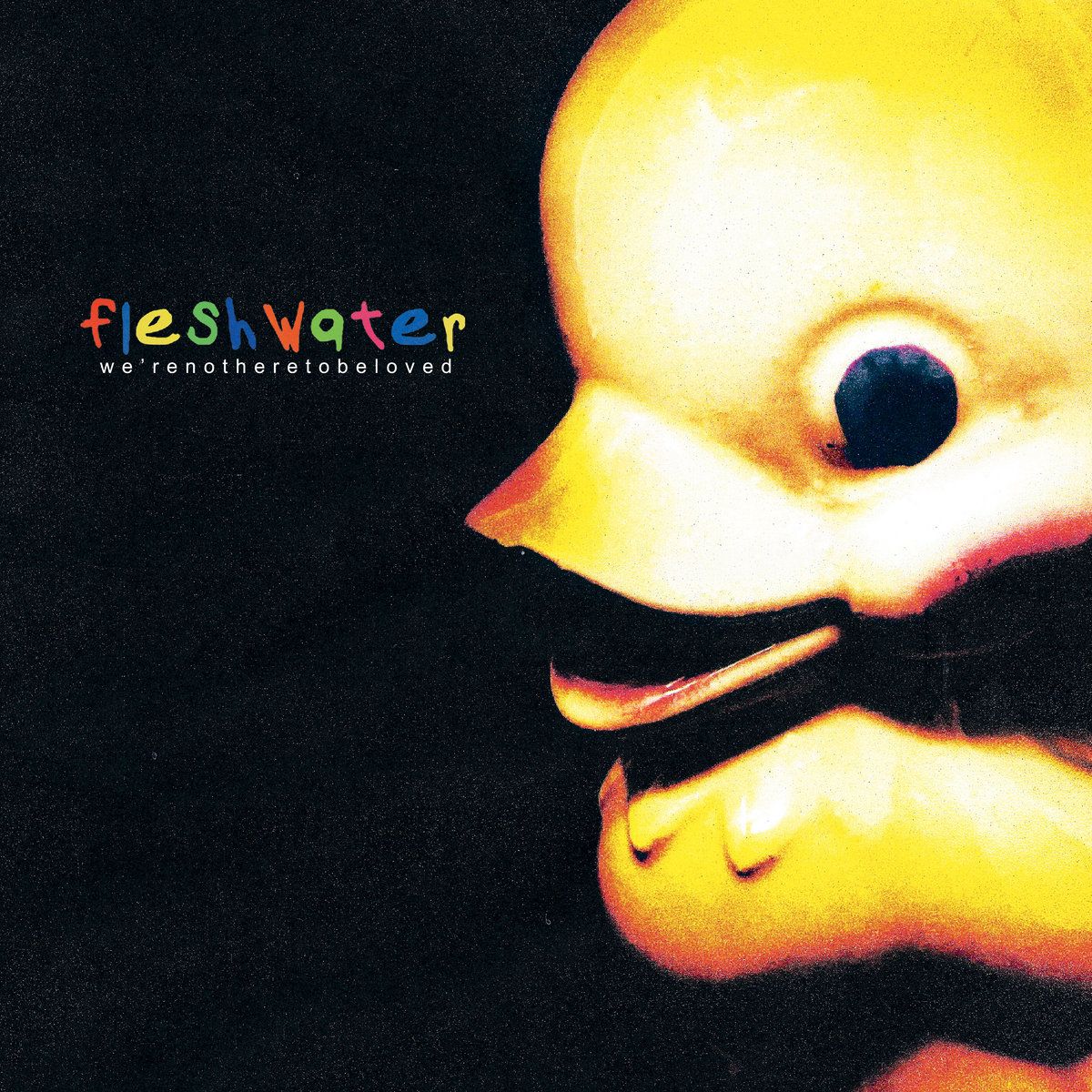
Fleshwater
We're Not Here To Be Loved
[Closed Casket Activities; 2022]
We're Not Here To Be Loved, 2022's debut effort from Boston's Fleshwater, also isn't here to re-invent the wheel. Rather, the band–made up of Anthony DiDio Jr, Jeremy Martin, and Matt Wood of Vein.fm, along with vocalist Marisa Shirar–are here to balance and rotate the tires on the hot rod that Deftones built, with a fresh coat of paint from more recent contemporaries like Turnstile.
Perhaps because the Vein.fm contingent clear out all the bile whenever that band gets in the jam space, Fleshwater is a relatively smoother outfit. The Deftones comps are apt–the songs on We’re Not Here To Be Loved have that aqueous quality that Around the Fur nailed down back in the 90s, where the guitars and the vocals are mixed in such a way as to act as a kind of sleeve for the rest of the sound to swirl and pump through, like blood through an artery. The result is an incredibly seductive, almost narcotic sonic experience, one that achieves heaviness and groove without whiplash. Fleshwater doesn’t hit you like a truck, they bury you like a wave.
Influence can be a heavy burden to unload. Opener "Baldpate Driver" has Stephen Carpenter's fingerprints all over the riffage, and the swirling coo/jagged scream combo featured throughout surely has the "they're actually shoegaze with metal elements" crowd questioning the band's genre (spoiler: they played Sick New World this year; they're ours). As the rest of the album largely stays in the same sonic territory, where Fleshwater transcend comparison to their totemic predecessors ultimately ends up being more spiritual than anything. In the hands of Deftones, those narcotic guitars and dragged moans are undeniably horny, a vibe that invariably overpowers every other emotional texture present and, frankly, has always made that band just a little bit funny. In contrast, Fleshwater takes that same palette and paints everything in shades of blue; We’re Not Here To Be Loved is a serious-minded, melancholy record. “Backstairs Breathing” channels the part of heartbreak when the hurt has become a dull roar, while “Linda Claire” and “The Razor’s Apple” speak to the weird intimacy of stretching ache between a couple falling apart. Running, drowning, falling, the sense of loss and of time, are all lyrical objects returned to again and again. Wedding these themes to churning, diving grooves is a move that, while indebted to nu metal’s past, opens up a lane that’s all their own today. —Cranfather, Josh Rioux
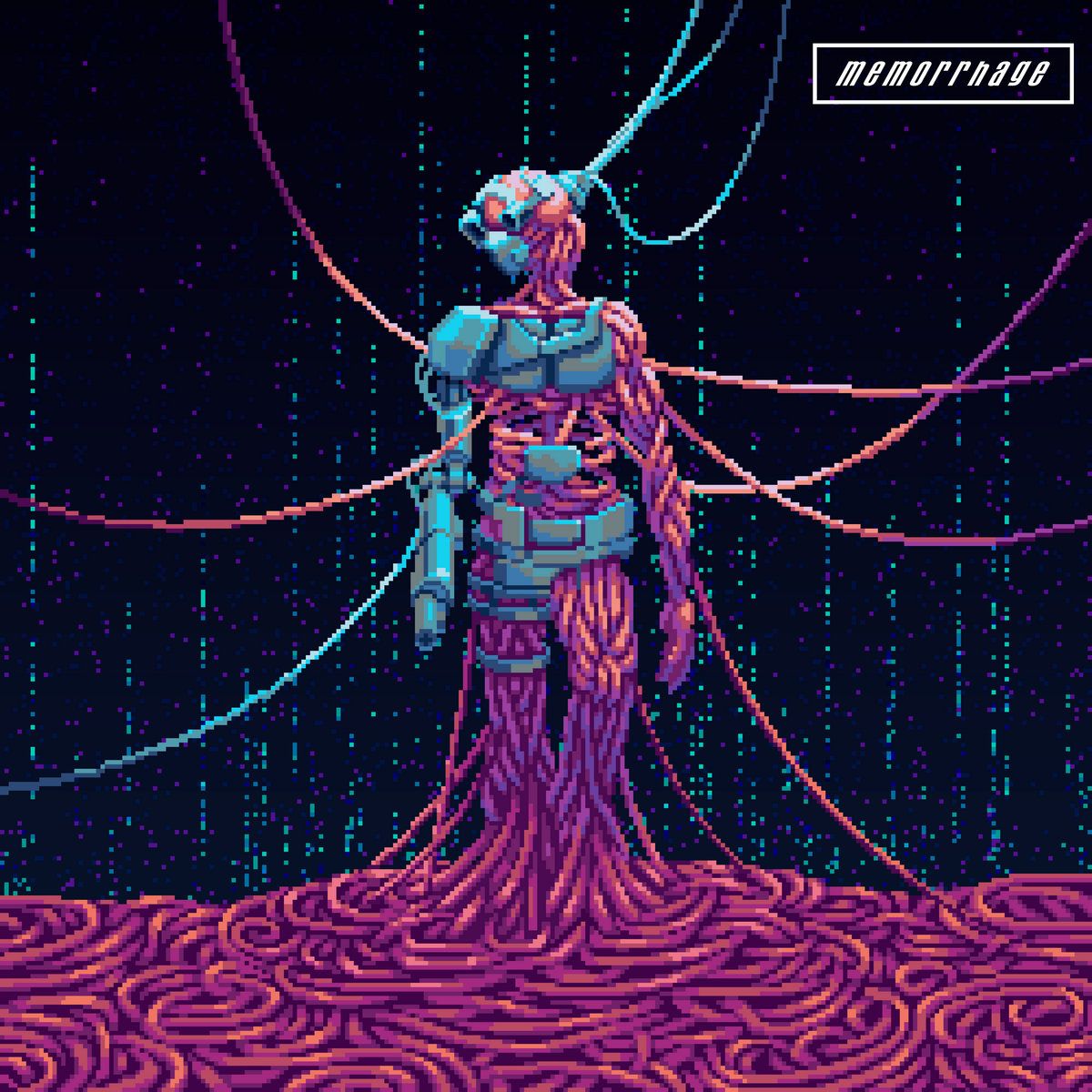
Memorrhage
Memorrhage
[Big Money Cybergrind; 2023]
In the thirty years since Korn asked us if we were ready, nu metal has been a lot of things. Wild, heavy, funky, dark, cathartic, emotional, experimental, super fucking fun… but one thing it has never been is conceptual. The genre has historically kept it direct with the lyrics, sticking to expressions of anger and trauma and letting the riffs and grooves fill out the lore, as it were. The closest thing nu metal has had to a capital-C Character on an album is maybe the baggy-pants dude from the covers of the first two Limp Bizkit records, if you want to make the case that it’s the same guy (I’m a Truther), unless you consider Slipknot in costume the characters on their albums rather than just the performers of them. Regardless, the kinds of concepts that 70s rock churned out by the doz were largely abandoned to Billy Corgan by the time nu metal came along in the 90s, and, costuming-aside, it’s one of the few pop moves nu metal has never bothered to bite. That is, until Garry Brents drug his Adidas track jacket and baggy jeans out from the crawlspace and discovered a copy of Do Androids Dream of Electric Sheep? tucked into one big-ass pocket.
This story is, of course, by me, but it’s how I like to imagine the genesis moment of Memorrhage, the self-titled nu metal by-way-of cybergrind project from the omniproductive, genre-splicing Brents, mastermind behind the long-running Gonemage and recently decommissioned Cara Neir, among many other bands, projects, larks and one-offs. Brents’ oeuvre, though diverse in scope, is united by his yen for wild, deep lore—take a gander through his Bandcamp and you’ll find a mythos behind every release (the Gonemage storyline itself is essentially its own D&D sandbox universe)—and Memorrhage is no different. Described as an anthology of cyborg-themed sci-fi stories, Memorrhage’s themes--android angst, psychic anguish, enslavement by systems, and the urge to overthrow one’s masters--at root graft surprisingly cleanly onto those of nu metal. As hellyeah as all that is, it would all mean nothing if the music didn’t kick some actual ass. Luckily, Memorrhage is a whole-ass riff salad bar, a blitzkrieg of wild, raging grind where the nu metal kind of crawls up through the spaces of the songs like some alien fungus until, lo, turntable squiggles and rap verses erupt from their very hearts. Take, for example, Brents’ rap verses in the middle of “Old Wave”, or the clean-sung break in “Knurl”, old the dank, Iowa-esque crawl of the bridge on “Brain Wield”—it’s like the first ¾ of this album represents the way nu metal almost pathologically colonized Brents’ extreme metal world. It’s all full send to that point, but for my money it’s actually the last three songs on the record that truly clinch Memorrhage as a contemporary classic. “Lunge” takes the burner this record is on and adds to it the best chorus on the album, a Bennington-saluting turn by guest vocalist Ilya Mirosh, as well as Brents scatting his whole ass off on the bridge and a short, lightning-hot bass solo in the transition from the first chorus back to the verse. You can hear a buried “yeah!” at the end, a moment that brings a little goateed tear to my eye every time. Mirosh is back on the next one, “Utility”, an honest-to-goodness alt-rock banger that could’ve got my head going six times a day at my modern rock radio-enslaved construction job in 2007, while “Ex-Sprite” takes yet another left turn into a sort of nu-industrial slow-jam featuring evil alt-rapper VoidDweller. It’s either nu metal possessed by nu hop, or else a rap track haunted by nu metal, the kind of experiment that would’ve been a secret song on a CD in ’99 given anchor position here in true homage to the way things were. Like with much of fourth wave nu, the approach on Memorrhage is less revival and more freebase; the nu metal here is boiled down, refined, and then vaporized as starship fuel, launching something that didn’t exist before. That’s always good news. Even better news is that, in classic Brents fashion, he’s already finished the follow-up. —Josh Rioux
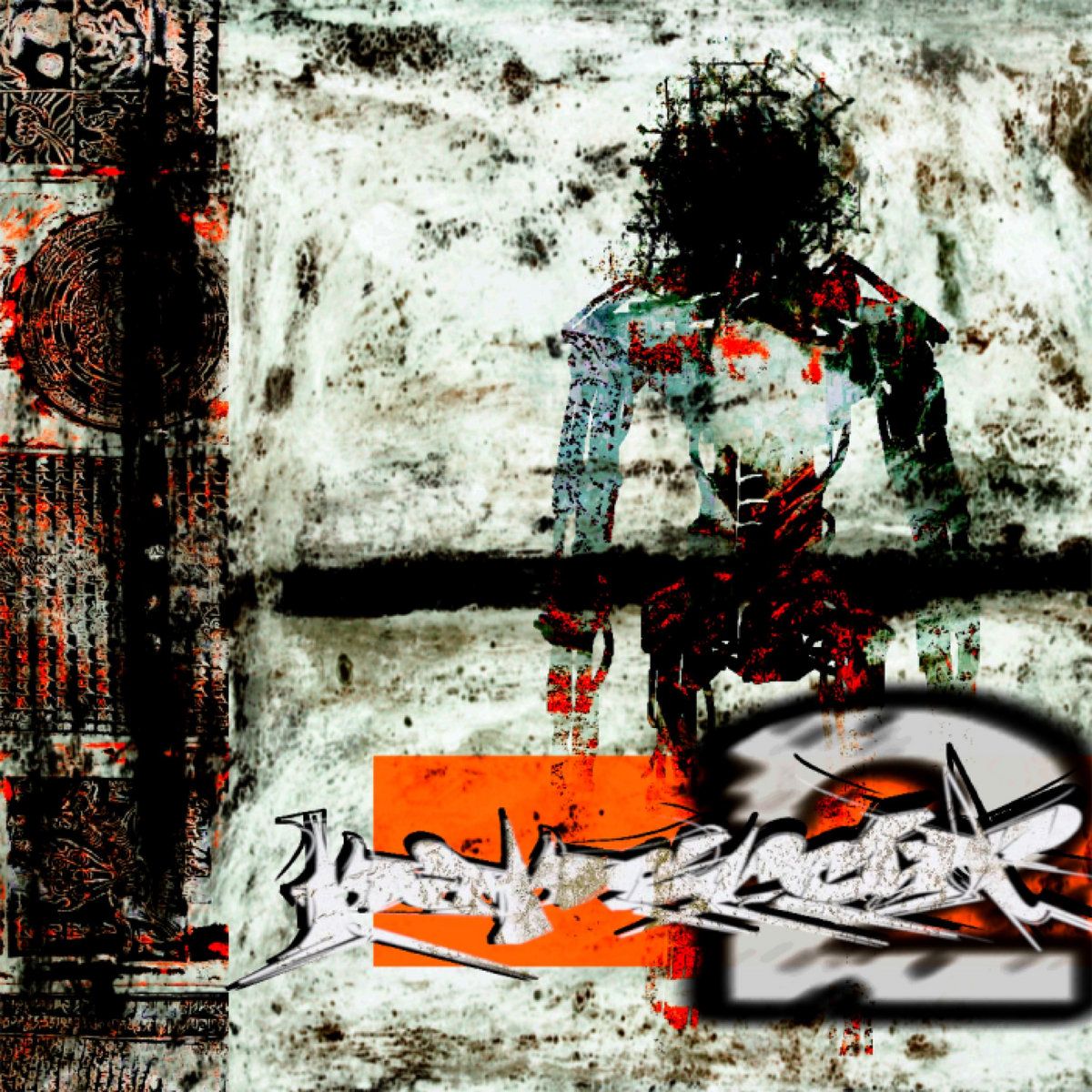
Papercut
Papercut 2
[Ephyra Recordings; 2023]
One thing I really love about the modern scope of nu metal is the heavy lean on the aggressive and the wild. A band I’ve come to see that takes that energy head-on would be Papercut, a group that slammed onto the scene with a self-titled EP in 2021. In 2023, we saw the release of Papercut 2, their debut full-length.
The first track, “Activation Program”, does a great job in setting the tone: Morpheus from The Matrix speaking directly to the listener and comparing their predicament to that of a journey in Wonderland, followed by the iconic boot-up jingle of a Playstation 2 and then total chaos (which ties back into the beginning, as its Neo being plugged into the Matrix). It’s a quick sampler of what’s sure to come over the album’s 47-minute run-time. The tracks careen between frenzied screams, classic hip hop flows and moody sections of singing (“Memory Destruction”, “Calculated” and “Something I Can’t Recognize” being my favorite examples). The mix feels like this was an album meant to have been discovered during the golden age of nu metal, a love letter to days long gone but a genre still beating. This is especially true of the vocals, which feel so incredibly raw in their more analog quality. “A Life Let Go” stands out in particular as my favorite track on the album. Its slow groove acts as a moment to let the listener breathe and just jam out (and it’s catchy to boot!), a perfect wind down to “System Crash” as the album’s closer. With their rather small catalog, Papercut are in a perfect position for fans of nu metal to latch onto and watch them grow. —Cain Borgia
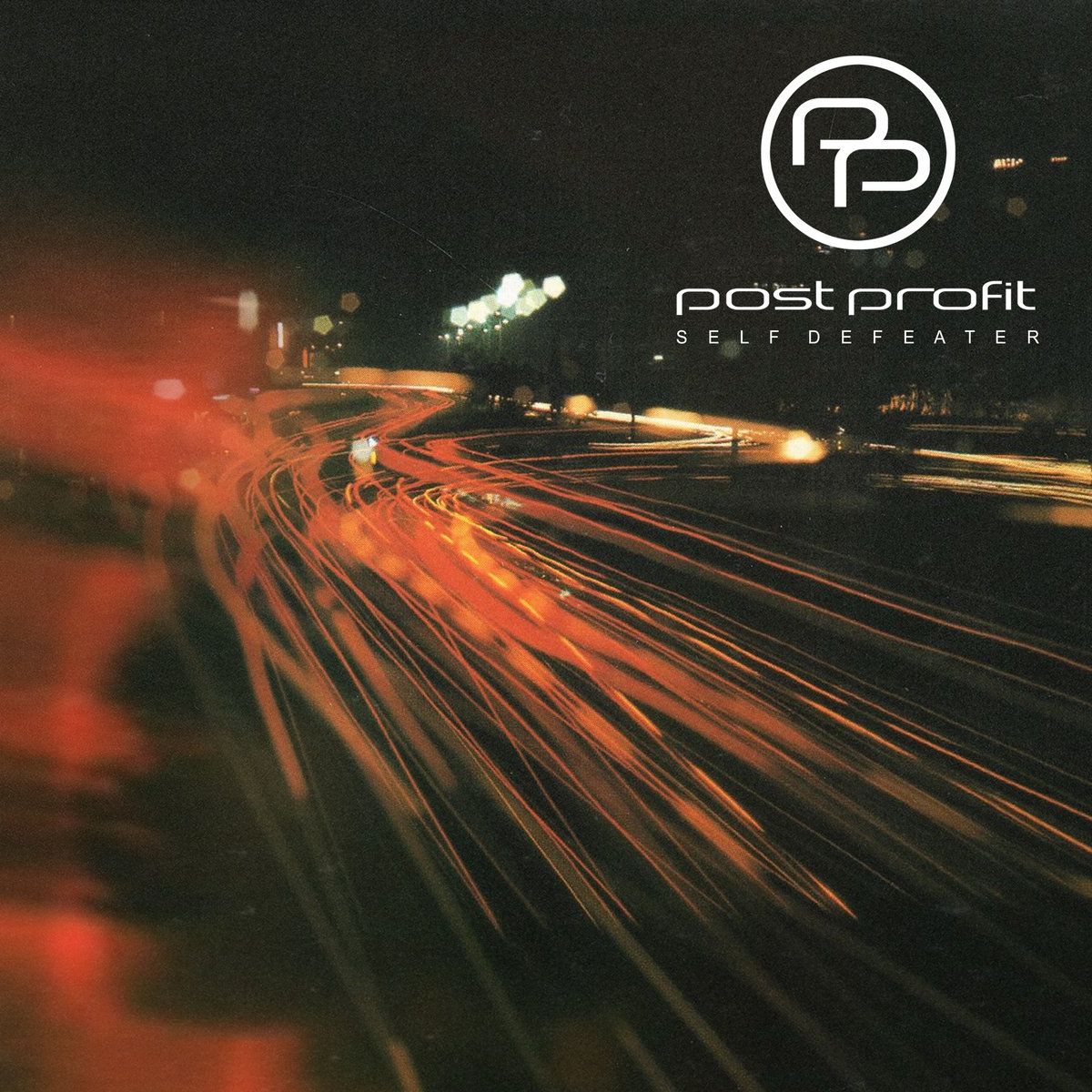
Post Profit
Self Defeater
[SharpTone; 2023]
Post Profit frontman Matt Jackson can sing, does sing, and loves to sing. This is the most immediate and lasting impression Post Profit leaves from its incredible Self Defeater. It’s a nu metal album for the music fan who suspects a lot of these heavy bands out here are just screaming to compensate for some vocal shortcomings. There are enough go-for-broke choruses and soaring hooks in these six tracks that Post Profit’s scope of influences could encompass Journey and Glassjaw without much difficulty. It signs off with “Keep Your Excuses,” a vow to seize tomorrow while the rest of their peers feel about in the past for a dollar. “I don't need your fucking help,” declares Jackson, “I'll do it by myself.” It’d be arrogant if he didn’t sound so damn good singing it. —Holiday Kirk
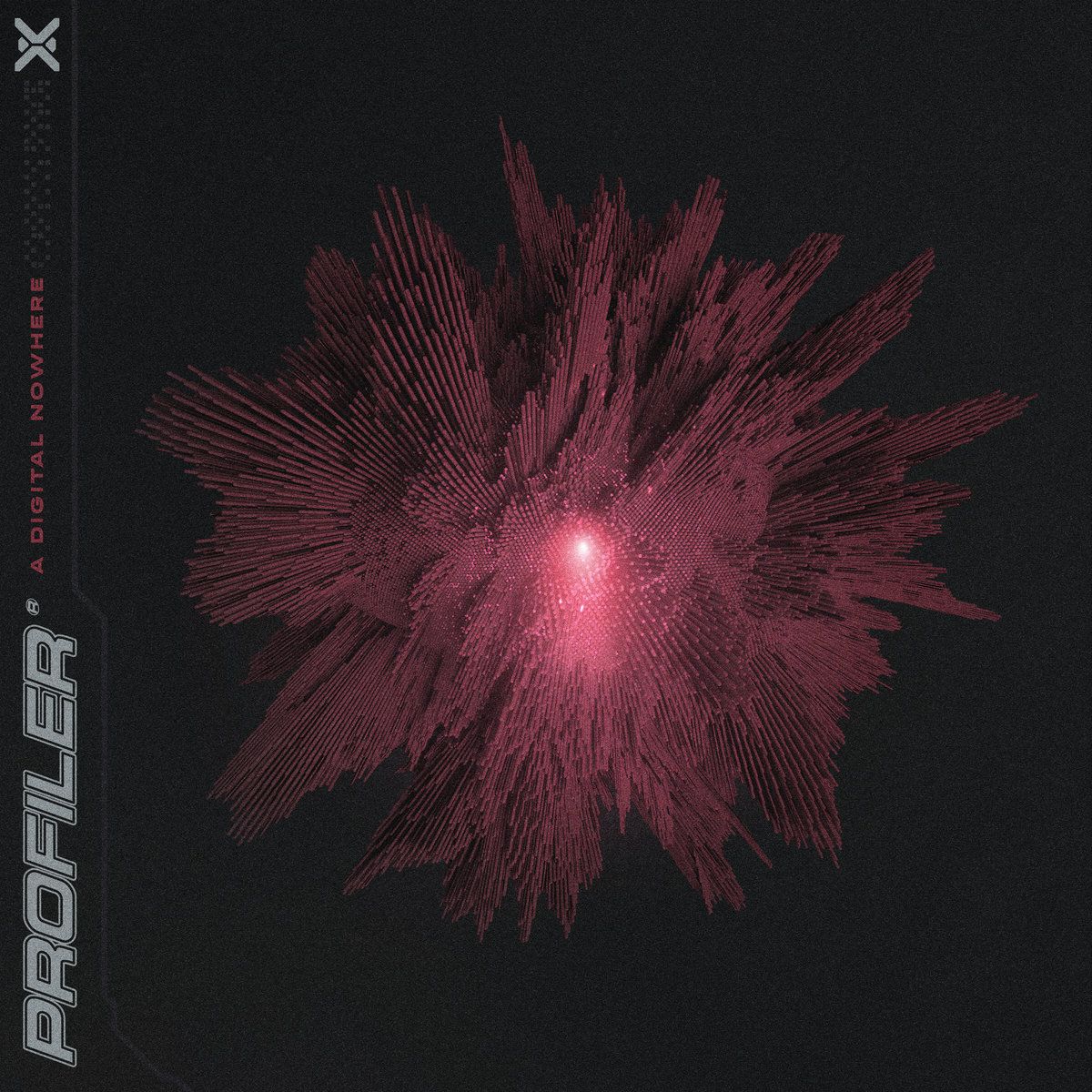
Profiler
A Digital Nowhere
[SharpTone; 2024]
Big comparisons provoke suspicion more than they provoke intrigue. For instance, if I said Profiler’s A Digital Nowhere is at least as good as Deftones’ Adrenaline, if not better, would you be excited by the idea or defensive at the implication? The implication that the old guard could be toppled is something we should rally behind, cheer on actively. Profiler for sure do not lack confidence; A Digital Nowhere’s first lyric is a very emphatic “Get up” followed by an even more emphatic “YEAHHHHHHHHHH!!!”. Nor do they lack style; the bassist plays a six-string bass. There’s as much promise and potential in them as there was in any of nu metal’s legacy acts on their debuts. And if this is Profiler’s Adrenaline then their next would be their Around the Fur; personally, that’s something I find to be really exciting. —Holiday Kirk

Thotcrime
D1G1T4L_DR1FT
[Prosthetic Records; 2023]
Nu-metal at its best has never shied away from incorporating and remixing popular genres, and online collective Thotcrime carries that tradition into a vastly different 2020s music scene. There is a lot to take in on the group’s sophomore effort D1G1T4L_DR1FT, a sonic mélange combining metalcore, cybergrind, breakcore, hyperpop and sass just as seamlessly as Linkin Park blended metal and hip-hop in the early aughts. We get guitar riffs duking it out with rapid-fire synth runs. Songs that sound like grindcore, right up until the dance beat kicks in. And the track names—this band knows how to title a damn song. The album starts with “This Isn’t Foundation, Now Give Me Your Skin Please?” and ends with the deeply resonant “I Couldn’t End Me, So I’d Like To See You Try.” That last track is worth the price of admission alone, with vocalist Hayleyy Sparxx exploring gender dysphoria, suicidal ideation, and finding the defiance within to tell the world and her own darkest impulses to fuck all the way off: “You can’t kill me, motherfucker / So tell me what’s next.” It’s a poignant end to an album where you’re never sure what’s around the corner—the real joy comes from sticking around long enough to find out. —Gabi Brown
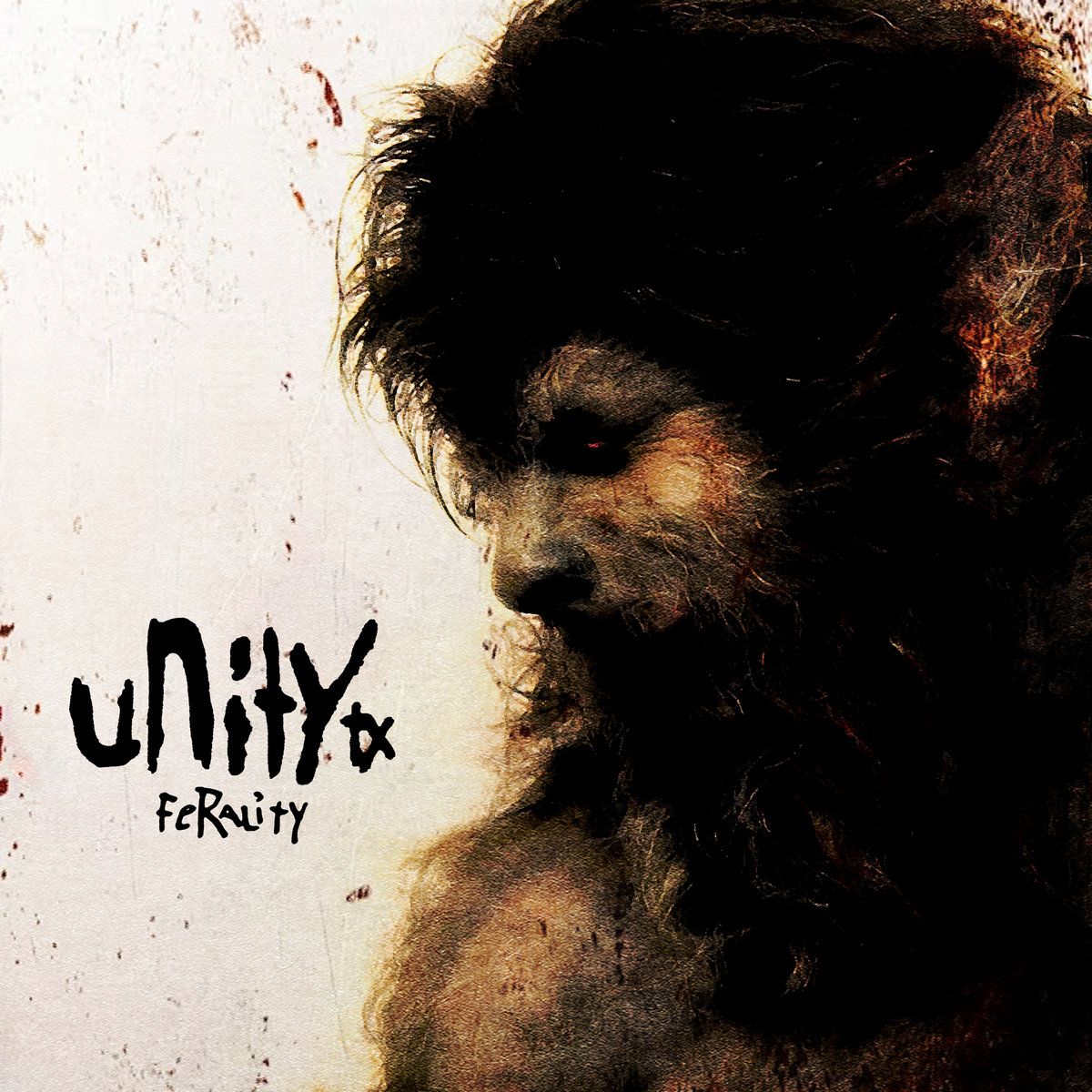
UnityTX
Ferality
[Pure Noise Records; 2023]
Dallas-based hardcore outfit UnityTX’s debut full-length Ferality firmly delivers on the sky-high expectations set by 2019’s Madboy EP, leaving us with one of the strongest releases of 2023. Vocalist Jay Webster puts on a stunning performance throughout, bouncing from cool and collected cleans to fast-paced rap verses to room-quaking roars. Sonically, the album explores lots of new territory for the band, veering into goth club industrial swagger with “DIAMOND DIEZ,” and subdued lyricism over high-tempo drumbeats reminiscent of Linkin Park on “PICTURE THIS.” When they return to a more familiar trap metal formula on tracks like “ROC SH!T,” it sounds downright triumphant, ending with Webster emphatically reminding us “I know my worth.” Ferality is a monster of a release from a band with a lot to say, and a perfect introduction to one of nu core’s rising stars. —Gabi Brown
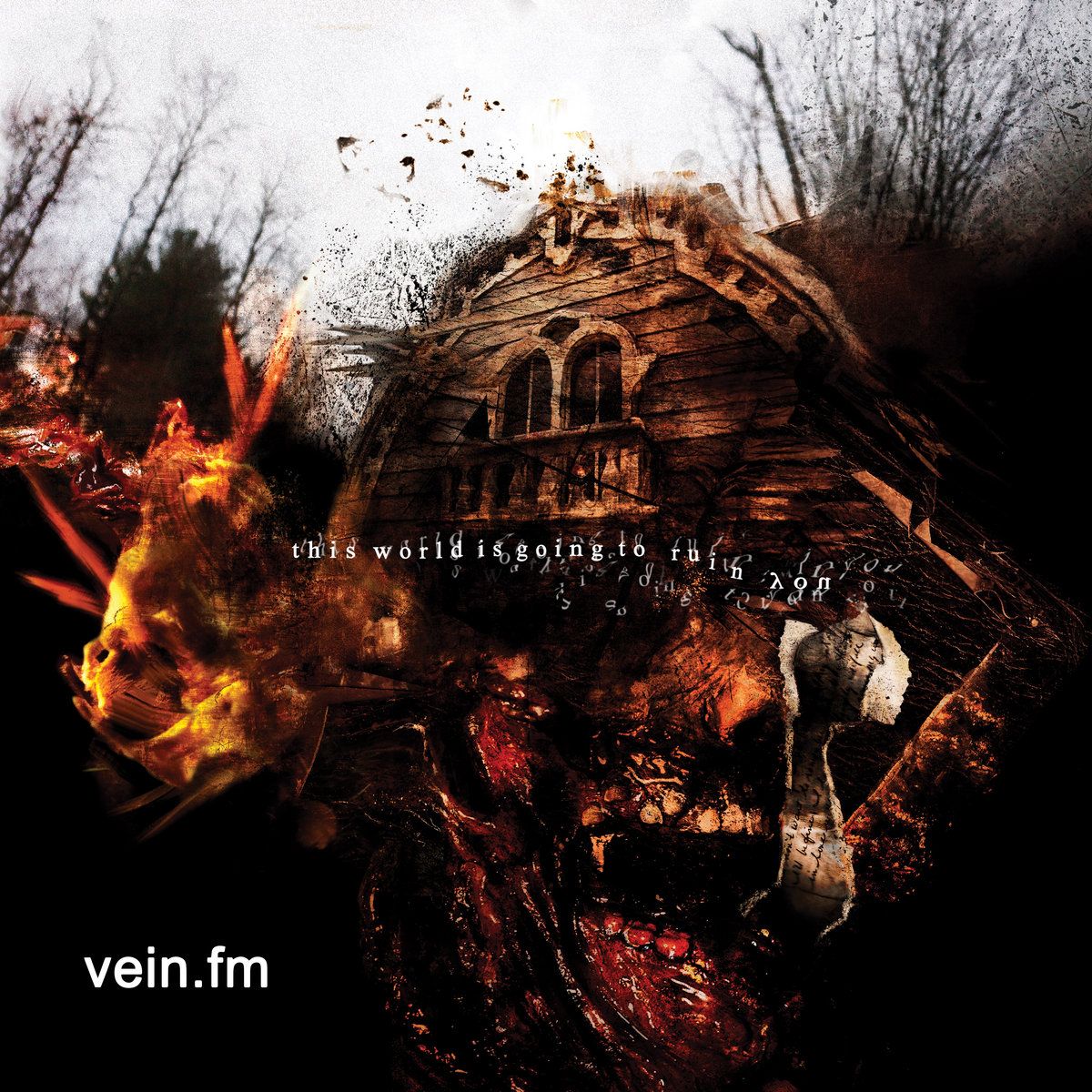
Vein.fm
This World is Going to Ruin You
[Closed Casket Activities; 2022]
“I can’t sleep now.”
A woman’s voice–small, vulnerable, a whisper on the far end of a phone–is the first thing we hear on This World is Going to Ruin You, the second full-length from Boston nucore outfit Vein.fm. Almost before they can be processed, her words are buried beneath two mammoth bass hits as the band drops into opener “Welcome Home”, as though they can’t tolerate the obvious pain in her voice any more than we can. That juxtaposition, between her phone-trapped intimacy and the absolutely vile low-end of that drop-in, is nu metal in a moment; the unbearable tenderness of true vulnerability, the threat of looming, grimy darkness. Since that shadow fell across the little girl on the swingset in 1994, the genre has trafficked in the textures of innocence and abuse, trauma, and the catharsis of channeled rage in a way that, in its next-door realism, draws more from alt rock’s wounded fascination with childhood than it does with metal’s more mythic use of darkness. The reality of biological death, talk of ICUs and wounds, knives, skin, and wombs, roots the record in the body and keeps the stakes on This World… fully in life and death territory. While Vein.fm’s use of haunting soundscape and that End Times-American Football album art is very old-school nu, the frothing hardcore they fuse to classic nu metal grime is pure fourth-wave, swapping out the swagger and groove of earlier forms for a fresh take on animal desperation. It’s an incredibly effective move; if there’s one thing that delineates current nu metal from that of the past it’s urgency, something hardcore has always taken to the wall.
This World… is an extremely layered listen, both in its audio textures–the songs are filled with vertically-arranged sheets of sound, voices, kids laughing, layers of wickering turntables, storms of guitar, cleans and screams stacked and peeling apart like shingles ripped off a roof–and in the way it dynamically shifts between modes. The album staggers back and forth between hurricanes of metallic hardcore and moodier alternative fare–the emotive shift in “Fear in Non Fiction”, where vocalist Anthony DiDio Jr.’s lung-shredding gives way to guest Geoff Rickly of Thursday’s tender cleans, then drops into the kind of quiet moan Corey Taylor or Jonathan Davis use to access nu metal’s emotional cellar, or the entirety of the chilling “Wherever You Are”, where DiDio Jr’s vocals, buried behind a wall of reverb like a ghost, drift around a haunted soundscape of shearing ambiance and drooping piano notes that pool and spread like black water.
The record concludes with the seven-minute “Funeral Sound”, a grieving epic that finds at its center the voicemail the record opened on. The band drops out entirely for about thirty seconds as she finally gets to be heard, intoning the worry that’s keeping her from sleep, a fear for her listener. “That could be you at any time…it scares me”, she confesses. The back half of the track swirls and burns around her voice, DiDio Jr. cooing “I’ll always be wherever you are” like a mantra around the little catches in her voice, closing on an unsettling press of sound that rises until it cuts on her sharp intake of breath. It’s a profoundly emotional, upsetting end to the record, one that manages to leave you, even in the absence of whos and hows, feeling very much in the presence of loss not yet fully processed. Catharsis doesn’t always mean a happy ending. In its deeply emotive fusion of genres, This World is Going to Ruin You is a landmark of current nu metal, taking the sound to places it’s rarely been. Take a deep breath; then let it take you along. —Josh Rioux


